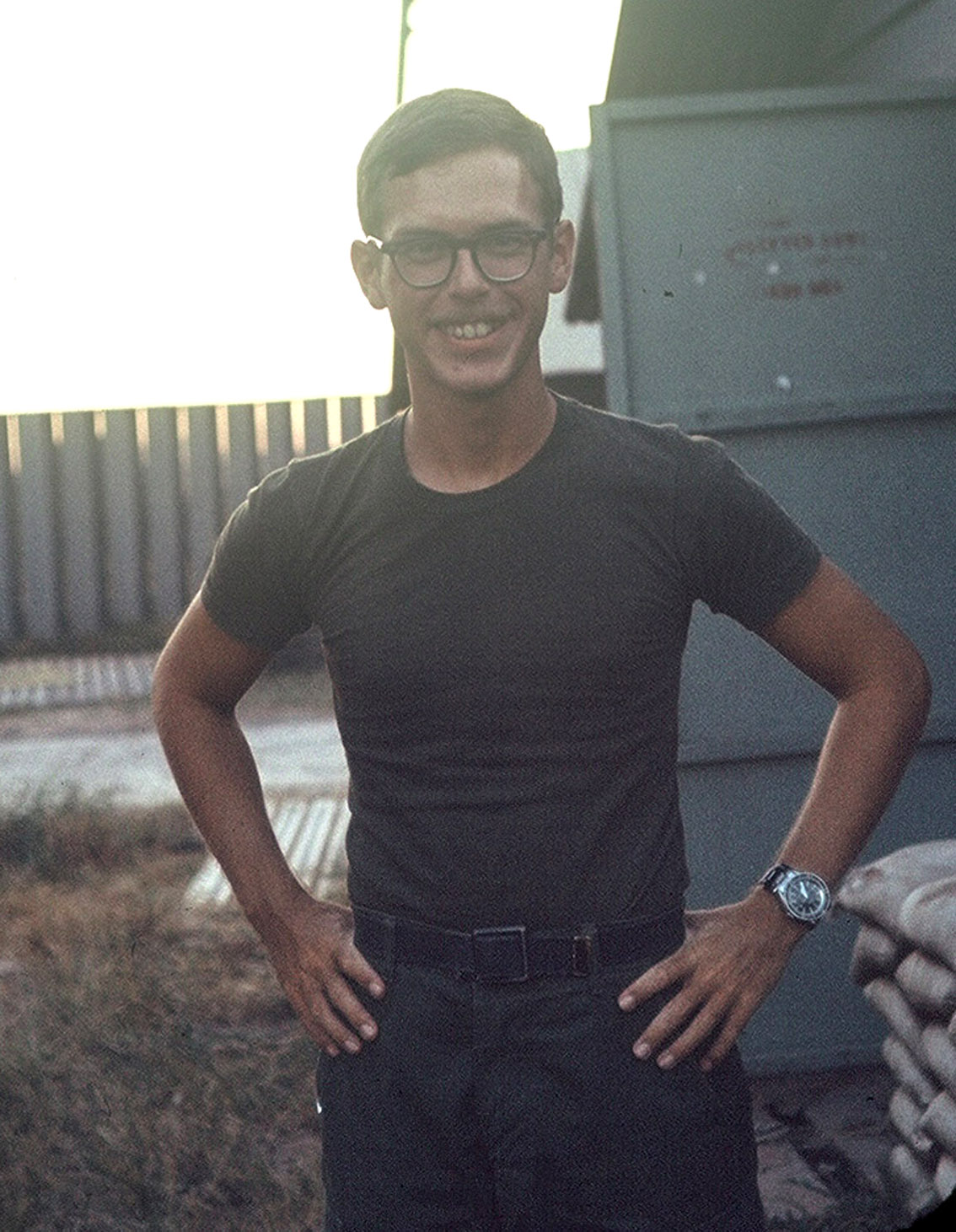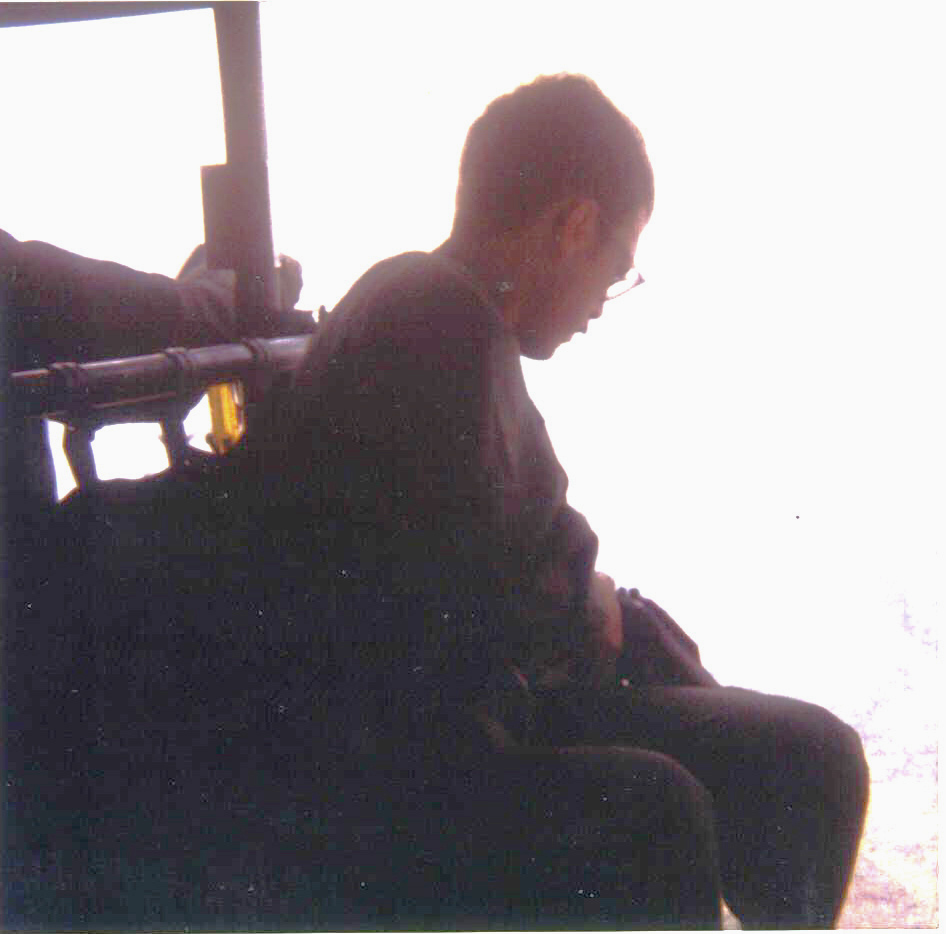Record date:
Ned Ricks, Major
Whether Major Ned Ricks was guarding German border during the Cold War or deployed to a Reconnaissance Support Base in Vietnam, or serving stateside, his communication abilities and care to cultivate the best of his men, made him a natural leader in combat and in peaceful zones.
Major Ned Ricks was born in Uniontown, Pennsylvania, in 1947 to a military family. Both of his older brothers — John and Bob Ricks — were servicemen in the United States Armed Services, in addition to his paternal grandfather. Military service was a central element of Ricks’s upbringing; Ricks and his brothers were told at a young age that service was required of them in some capacity: “Serve, pay your fair share [of] taxes, and vote. Those are the obligations of citizenship,” according to Ricks’s father.
Ricks’s own service began at Stetson University in Deland, Florida, as a member of the ROTC. While at university, in addition to his military introduction, Ricks pursued what would become another life-long endeavor: theater. While at Stetson, Ricks worked both as a stage hand and as an actor, being cast in university productions.
After four years at Stetson, Ricks was commissioned as an officer in June of 1968. Ricks was then transferred to Fort Jackson, South Carolina to serve as a company officer. During this time, Ricks worked to orchestrate the day-to-day tasks of base life, a position which offered invaluable insight into the logistics of Army operation. Along with other new Regular Army officers from West Point, the Citadel, VMI and ROTC, Ricks was then sent to Ft Knox for the Armor Officers Basic Course. After six weeks of training, Ricks moved with the other officers to Ranger School in Fort Benning, Georgia. During these nine weeks, Ricks describes being pushed to physical and mental limits, performing tasks never before encountered, such as compass land navigation and traveling up to seventeen miles at a time on foot. After incurring ligament damage in one knee in the school, Ricks was sent to Germany.
Ricks’s service in Germany commenced in the city of Bad Kissingen, in then-West Germany (or the Federal Republic of Germany). Ricks’s assignment was with the F Troop, 2d Squadron 14th Armored Cavalry Regiment, tasked with patrolling the East-West Germany border and offering the first line of defense against a potential Russian invasion. Part of this duty included aiding and protecting individuals who were attempting to escape to West Germany. From this location, Ricks then transferred to Stuttgart where he served as a General’s aide. After two years of service in Germany, on the advice of his General, Ricks went to serve in Vietnam.
After some more training in Jungle Warfare School, Ricks was assigned to the 1st Squadron of the 9th Air Cavalry in the 1st Cavalry Division and traveled to Bien Hoa, Vietnam. Ricks later was transferred to the 1st Squadron, 10th Cavalry to command Troop C after that unit’s commanding officer was murdered. Although a majority of Ricks’s oral history is occupied with his service in Vietnam, Ricks explains that it was only one year of his service that he does not let define him. During this year, Ricks encountered challenges that have become synonymous with the Vietnam War: navigating and surviving the climate and landscape, encountering the local populations, and soldiers’ using drugs and soliciting prostitutes, to name a few. Despite these challenges, Ricks never abandoned his personal goal to act in the best interest of his men and their safety.
Ricks ended his year in Vietnam with Troop C of the 10th Cavalry. For a time, that unit was under the control of ARVN—the Army of the Republic of Vietnam—which was then supplemented by U.S. troops. Ricks, after returning to the States to visit his family, describes the difficulties of acclimating to civilian life; there was a gap in experience between servicemen and civilians. As a Regular officer, Ricks continued his military service stateside, traveling to Fort Hood, Texas, for his next assignment. While on base in Fort Hood, Ricks describes an episode in which his combat experience over-powered his being at a safe stateside posting: while eating dinner on base, at 5:00 salute cannon was fired. Upon hearing the discharge, Ricks dove under his table at the restaurant, mentally transported back to combat by the sound of the cannon. Ricks recalls being thankful that he was surrounded by other servicemen who understood Rick’s actions and notes the importance of getting a chance to “decompress” and readjust after combat experience.
At Fort Hood, Ricks resumed his service with the 1st Cavalry once again. Ricks even recalls the tense situation in the Army as Nixon’s presidency came to an end. In 1975, Ricks left active duty and began a long career in the Army Reserves. Ricks worked to ensure the proper training of soldiers, a task that called for extensive travel around the country. Some of this work included a transfer to New Orleans to work in military intelligence and an assignment as an Inspector General. Ultimately, in 1993—after 25 years of service in the Reserves—Ricks retired as a Major, US Army Reserve.
Since his retirement, Ricks has been involved with numerous civilian endeavors, including working as a consultant for an insurance company and continuing his theater work. Ultimately, Ricks seems to have a passion for teaching and for sharing his experience in the military, He works at the National Veterans Art Museum and Loyola University Chicago’s history program. Ricks works to dispel the common misconceptions that surround Vietnam servicemen, which he cites as a reason he has not become involved in veteran groups. Despite this, Ricks still considers “soldier” to be a core part of his identity.















